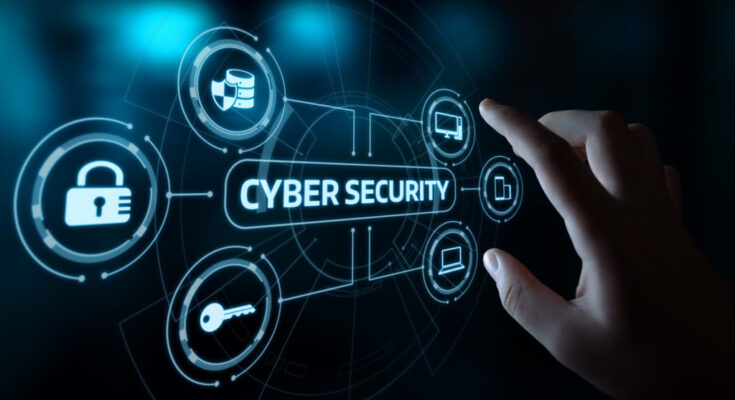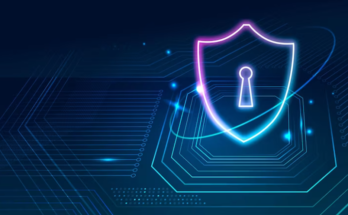In today’s digital-first world, small businesses are increasingly becoming targets of cybercriminals. While large corporations often make headlines for massive breaches, small and medium-sized enterprises (SMEs) are just as vulnerable. They typically lack the robust defenses of bigger organizations. A single data breach can lead to financial losses, reputational damage, and even the permanent closure of a small business.
Hiring the best cybersecurity company in India is one of the prominent options that small businesses should try to safeguard their crucial information from unscrupulous people.
There are some ways that will help these businesses to strengthen their cybersecurity without spending enterprise-level budgets on this segment. Let’s dive into some practical and effective tips.
1. Educate and Train Employees
Your employees are the first line of defense against cyber threats. Unfortunately, they can also be the weakest link if not properly trained. Cybercriminals often use phishing emails, fake links, and social engineering tricks to exploit human error.
- Conduct regular training sessions on how to spot phishing emails.
- Encourage staff to verify suspicious requests before acting.
- Establish a “think before you click” culture within your organization.
When employees know what to look for, they are less likely to fall victim to common scams.
2. Enforce Strong Password Policies
Weak passwords remain one of the most common entry points for hackers. A small business can mitigate this risk by enforcing strong password protocols.
- Require passwords that are at least 12 characters long with a mix of letters, numbers, and symbols.
- Implement multi-factor authentication (MFA) for email, financial systems, and cloud services.
- Encourage the use of password managers to avoid recycling the same password across multiple platforms.
This one step alone can dramatically reduce your vulnerability.
3. Keep Systems and Software Updated
Outdated software is a playground for hackers. Cybercriminals actively scan for vulnerabilities in old operating systems, browsers, and applications.
- Enable automatic updates for all critical software.
- Regularly update your antivirus, firewalls, and endpoint protection tools.
- Patch vulnerabilities in third-party plugins and apps as soon as updates are released.
By staying up-to-date, you close the doors that hackers might otherwise exploit.
4. Secure Your Wi-Fi Network
A poorly protected Wi-Fi network is an open invitation for cybercriminals. To secure your business network:
- Change default router usernames and passwords.
- Use WPA3 or WPA2 encryption.
- Hide your SSID (network name) to make your Wi-Fi less visible to outsiders.
- Provide employees with a separate secure network, and offer guests a different, restricted one.
This prevents intruders from using your network as a backdoor into your systems.
5. Regularly Back Up Data
Imagine waking up one morning to find your entire system locked by ransomware. Without backups, you could lose critical customer information, financial data, and years of work.
- Automate backups for files and databases.
- Store backups both on the cloud and offline.
- Test your backups periodically to ensure they are recoverable.
Backups can mean the difference between a quick recovery and a catastrophic loss. Top security services will help you to backup your company’s important data on a daily basis.
6. Limit Access and Permissions
Not every employee needs access to every system. The principle of least privilege should guide your access policies.
- Provide employees with only the permissions necessary for their role.
- Review access rights regularly, especially when employees change positions or leave.
- Use role-based access controls for sensitive systems.
This minimizes the potential damage if an account is compromised.
7. Protect Mobile Devices
With remote work and on-the-go business operations, mobile devices are now prime targets for attackers.
- Require employees to use strong passwords or biometrics on their devices.
- Enable encryption and remote wipe features.
- Ensure company data is accessed through secure VPNs.
A lost smartphone shouldn’t become a gateway to your company’s data.
8. Have an Incident Response Plan
Even the best defenses can’t guarantee 100% protection. That’s why every small business should prepare for “what if” scenarios.
- Create a step-by-step plan for detecting, responding to, and recovering from cyber incidents.
- Assign roles to employees, who contacts IT support, who informs customers, and who communicates with stakeholders.
- Keep emergency contact details of your cybersecurity or IT provider readily available.
Preparation helps minimize chaos and financial loss during an attack.
9. Invest in Professional Support
For many small businesses, cybersecurity can feel overwhelming. Partnering with experts can provide peace of mind.
- Consider outsourcing to a managed IT or cybersecurity provider.
- Look into affordable cyber insurance policies.
- Conduct periodic security audits with professional help.
Conclusion
Cybersecurity is no longer optional, it’s essential for small businesses that want to grow and thrive in today’s digital economy. The good news is that many protective measures, like employee training, backups, and strong password practices, cost little but can make a huge difference.
If you are ready to take your small business security to the next level, working with a trusted technology partner is key. Grizon Tech, the best IT company in India, specializes in providing tailored IT and cybersecurity solutions that fit the unique needs of small businesses. Withour expertise, you can focus on growing your company while knowing your digital assets are safe.




